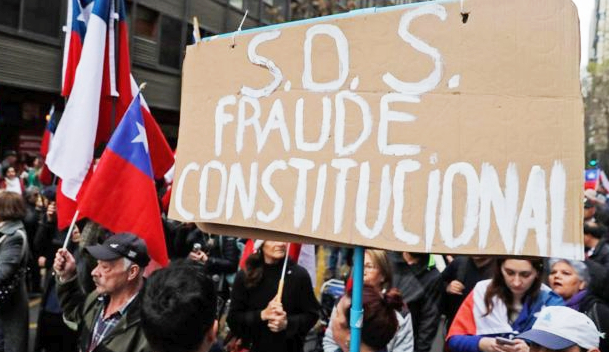Among the many lapidary definitions of the term politics that I know, the one stating it is “the management of conflict” is my favorite. Four words that encapsulate the essence of a quintessentially human activity, the analysis of which gives rise to numerous volumes and shapes university careers of varying lengths. Conflict as a scenario where fear plays a transcendental role, and management as a set of arts in the complex process of decision-making within a community.
However, there is a more benevolent version loaded with significant doses of optimism that emphasizes the establishment of frameworks for understanding and negotiation. In this version, the focus is on seeking consensus in the behavior of individuals, either through the existence of a climate of mutual trust or the establishment of rules fostering a certain level of coexistence. Social capital and institutions marked by widely recognized legitimacy form the basis of its development.
In a way, these two factors can also be found in the first scenario, despite the absence of a “positive” view of the problem. But compared to the emphasis on conflict, consensus would enjoy a greater fervor. Thus, governing through consensus would always be more valued than governing through conflict, as the latter would imply a fall into the polarizing dynamics always condemned.
Lately, the absence of consensus has been the most repeated mantra when evaluating the document delivered to President Gabriel Boric by the Constitutional Council responsible for drafting the Constitution project to be submitted to a plebiscite on December 17. Ricardo Lagos, in statements to Spanish daily El País on November 4, warned that “(we) are given a partisan text, with no possibility of representing the Nation as a whole.” The politics of consensus, which had a commendable claim to mark a promising future around a purportedly homogeneous community agreeing on basic guidelines for their immediate actions, was disappointing.
After a task that has extended almost uninterruptedly for four years, the Chilean constitutional path is heading towards a sterile conclusion. The probable negative vote will undermine thousands of hours dedicated to it by activists, the political class, analysts – both opinion and academia – and a citizenry participating in consultations and electoral processes. People committed to what they individually consider best for the country, well-intentioned (or not), and endowed with more or less knowledge. The triumph of the affirmative vote would not improve things either. In short, an effort for a vain consensus buried by, some say, the irrationality of the ever-present conflict.
The reasons and the casuistry of what happened have been, are, and will continue to be the subject of well-documented analyses. However, at the moment, three major issues seem to emerge, warranting consideration for the implications they might have in confronting similar situations in neighboring countries. This is relevant, especially considering that Chile’s democracy level ranks among the top three in Latin America according to various indices. The systemic nature of these issues encourages their integrated consideration.
The comprehensive reforms that aim to implement, such as in this case, a new constitutional order, clash diametrically with those that can be carried out gradually. Gradualism is a “two steps forward, one step back” procedure that, by adjusting decisions in both time and topics, allows for substantive long-term progress. In contrast, maximalism based on “all or nothing” supposedly allows, at its extreme, to “storm the heavens,” but often involves abuse and the hollowing out of the process, ultimately excluding a portion of society. The confusion generated by the urgent demand two decades ago for the renowned “construction of hegemony” continues to yield its dividends.
Secondly, the 21st century is based on a liquid modernity, in Zygmunt Bauman’s terms. A situation that has been intensified by the digital revolution in the form of acute individualism and the proliferation of multiple, changing and overlapping identities that make the articulation of one-dimensional collective projects very challenging. If the nation was always an artificial construction, undoubtedly quite successful up to a certain time, today it becomes a chimera. Thus, attempting to express the presumed will of the nation as a whole in a single process, even if its steps are articulated by mechanisms that worked at other times, means ignoring the exponential changes recorded in society in recent years.
Lastly, as Mariano Torcal has been pointing out in his most recent works, affective polarization dominates today’s political landscape in a widespread manner, being the epitome that plagues contemporary democracies. Understood as the tendency to view opponents negatively and co-partisans positively, it involves the entry of emotions into politics in an extremely fragmented and individualized world. The widespread affective polarization implies that the aspiration to establish the great consensus for the foundation of a new political order encounters an obstacle that requires, in line with the previous section, proposing new mechanisms of action. I fear that constituent processes as we knew them until recently are definitely things of the past, and I believe that the current moment demands novel concepts and innovative strategies where the lure of consensus finds its replacement. Meanwhile, there is no choice but to deal with the conflict generated in as many directions as there are individuals supposedly empowered by their smartphones.
*Translated by Ricardo Aceves from the original in Spanish.













